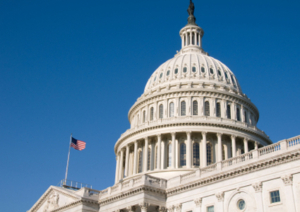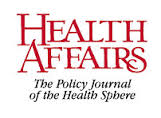PA Health Policy Update for November 22
The following is an update of selected state health policy developments in Pennsylvania November 18 – 22. (Some of the language used below is taken directly from state documents).
Governor Shapiro
Governor Shapiro has signed Executive Order 2024-04 creating the Pennsylvania Permit Fast Track Program to streamline the state’s permitting process for key economic development and critical infrastructure projects. Find additional information in this press release.
General Assembly
The state House of Representatives and Senate have recessed until the call of their respective chair.
Department of Human Services
The Department of Human Services (DHS) has issued a Medical Assistance Bulletin with updates to the Medical Assistance (MA) Program Vaccine Desk Reference. This bulletin applies to all providers enrolled in the MA program that may administer vaccines to MA beneficiaries in the fee-for-service or managed care delivery system.
DHS has updated its calendar of mailing dates for Remittance Advices and corresponding electronic transfers and checks through December. Find the updated calendar here.
Insurance Department
The Pennsylvania Insurance Department (PID) has announced the publication of the first Pennsylvania Affordable Care Act and Qualified Health Plans (QHP) Summary Report. This report examines how PID reviews health insurance products and enforces laws to ensure a fair insurance market and equitable treatment of consumers. Find more information in this press release.
Independent Regulatory Review Commission 
The Independent Regulatory Review Commission (IRRC) has announced it received the following final form regulations, which will be considered at its public meeting on December 5, 2024.
- State Board of Medicine Opioid Treatment Programs: this final-omitted rulemaking amends the Board of Medicine’s regulations to allow the initial physical examination required for prescribing, administering, and dispensing controlled substances to be done via telehealth under certain conditions.
- State Board of Osteopathic Medicine Licensure Requirements: this final rulemaking includes amendments to licensure requirements that are, in part, necessary to reflect the merger of the post-graduate training bodies for osteopathic (DO) and allopathic (MD) medical school graduates into a single accreditation system.
Around the State
- The New York Times has written about President Donald Trump’s plan to nominate Pennsylvania resident Dr. Mehmet Oz to serve as the administrator of the Centers for Medicare and Medicaid Services.
- WKBN 27 has written an article about the Commonwealth’s continued efforts related to the potential sale of Sharon Regional Medical Center, part of Steward Health Care which filed for bankruptcy in May.
- City & State Pennsylvania has published an article about the five bills signed into law by Governor Shapiro this week and his signing of an executive order on permitting.
Stakeholder Events
DHS – Long-Term Services and Supports Subcommittee – December 4
The Long-Term Services and Supports Subcommittee (LTSS) will hold a public meeting on December 4 from 10:00 a.m. to 1:00 p.m. The meeting will be held in person and virtually. Click here for more information.
DHS – Consumer Sub-MAAC – December 4
The Consumer Subcommittee of the Medical Assistance Advisory Committee (MAAC) will hold a public meeting on December 4 at 1:00 p.m. The meeting will be held virtually. Click here for additional information.
DHS – Medical Assistance Advisory Committee – December 5
The Medical Assistance Advisory Committee (MAAC) will hold a public meeting on December 5 at 10:00 a.m. The meeting will be held virtually. Click here for additional information.
 Governor Wolf
Governor Wolf Department of Human Services
Department of Human Services COVID-19: By the Numbers
COVID-19: By the Numbers Stakeholder Events
Stakeholder Events The cut was mandated by the 2010 Affordable Care Act but has never been implemented.
The cut was mandated by the 2010 Affordable Care Act but has never been implemented. While testifying before the Senate Appropriations Committee’s Subcommittee on Labor, Health and Human Services and Education, Health and Human Services Secretary Alex Azar acknowledged that the administration’s proposed FY 2021 would eliminate the enhanced rate at which the federal government matches state funds used to serve individuals who enrolled in Medicaid through the Affordable Care Act’s Medicaid expansion provision. That enhanced rate calls for the federal government to pay 100 percent of the costs associated with the Medicaid population during the first year of Medicaid expansion, eventually scaling down to 90 percent after 2020. Nationally, the federal government’s matching rate for the pre-expansion population is 57 percent; that matching rate would not be affected by this proposal.
While testifying before the Senate Appropriations Committee’s Subcommittee on Labor, Health and Human Services and Education, Health and Human Services Secretary Alex Azar acknowledged that the administration’s proposed FY 2021 would eliminate the enhanced rate at which the federal government matches state funds used to serve individuals who enrolled in Medicaid through the Affordable Care Act’s Medicaid expansion provision. That enhanced rate calls for the federal government to pay 100 percent of the costs associated with the Medicaid population during the first year of Medicaid expansion, eventually scaling down to 90 percent after 2020. Nationally, the federal government’s matching rate for the pre-expansion population is 57 percent; that matching rate would not be affected by this proposal. In late December, PBS broadcast an interview with Centers for Medicare & Medicaid Services administrator Seema Verma. Kaiser Health News has published a transcript of excerpts from that interview during which Verma discusses Medicaid – including enrollment, eligibility, services, and children – Medicare for all, administration attempts to reduce health care costs, protection for people with pre-existing conditions, and more. Read those excerpts in the Kaiser Health News article “
In late December, PBS broadcast an interview with Centers for Medicare & Medicaid Services administrator Seema Verma. Kaiser Health News has published a transcript of excerpts from that interview during which Verma discusses Medicaid – including enrollment, eligibility, services, and children – Medicare for all, administration attempts to reduce health care costs, protection for people with pre-existing conditions, and more. Read those excerpts in the Kaiser Health News article “ Authorization for delaying the cut in allotments to the states, which would have resulted in reduced Medicaid DSH payments for many hospitals – including private safety-net hospitals – would expire on May 22. Congress is expected to address Medicaid DSH, along with surprise medical bills, the price of prescription drugs, and other health care matters, before that time.
Authorization for delaying the cut in allotments to the states, which would have resulted in reduced Medicaid DSH payments for many hospitals – including private safety-net hospitals – would expire on May 22. Congress is expected to address Medicaid DSH, along with surprise medical bills, the price of prescription drugs, and other health care matters, before that time. A cut in federal Medicaid disproportionate share (Medicaid DSH) allotments to the states is mandated by the Affordable Care Act and has been delayed several times by Congress. If implemented, Medicaid DSH allotments to the states would be slashed $4 billion in FY 2020 and then $8 billion a year through FY 2025.
A cut in federal Medicaid disproportionate share (Medicaid DSH) allotments to the states is mandated by the Affordable Care Act and has been delayed several times by Congress. If implemented, Medicaid DSH allotments to the states would be slashed $4 billion in FY 2020 and then $8 billion a year through FY 2025. The statement, an annual OMB document, organizes the priorities as follows:
The statement, an annual OMB document, organizes the priorities as follows: Specifically, they experienced:
Specifically, they experienced: While observers warn that it is difficult to attempt to render a final verdict on the reform law’s insurance expansion and its impact, various studies and observations point to encouraging developments. Among them:
While observers warn that it is difficult to attempt to render a final verdict on the reform law’s insurance expansion and its impact, various studies and observations point to encouraging developments. Among them: